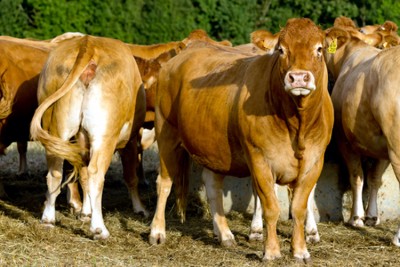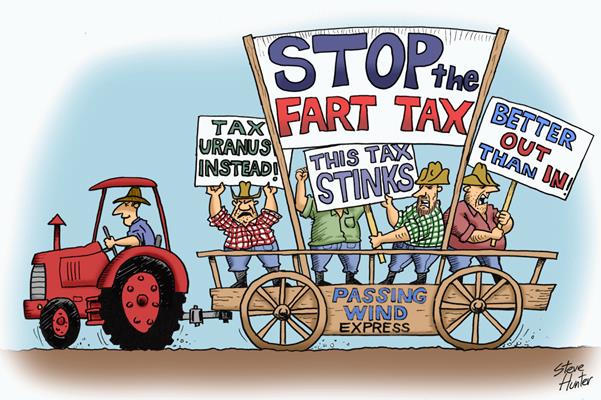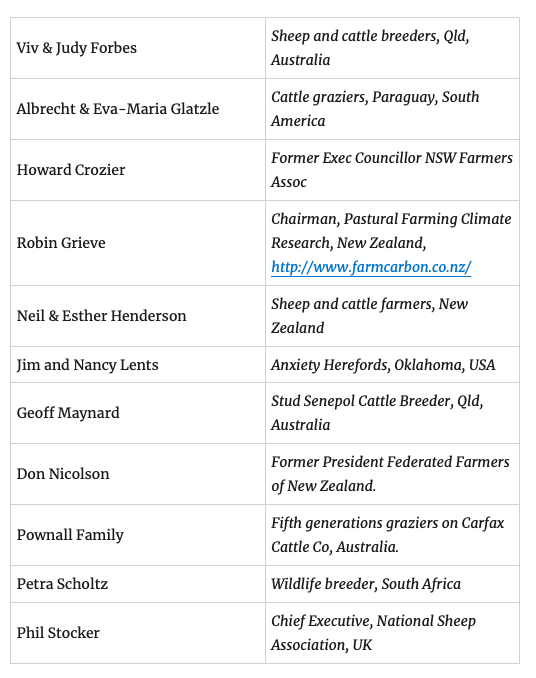The Battle for Our Grasslands and Livestock

All Global Research articles can be read in 51 languages by activating the Translate Website button below the author’s name.
To receive Global Research’s Daily Newsletter (selected articles), click here.
Follow us on Instagram and Twitter and subscribe to our Telegram Channel. Feel free to repost and share widely Global Research articles.
First published by Global Research on January 4, 2023
***
Grasslands and arable land cover just 10% of Earth’s surface but (with the oceans) they produce all of our food and fibre. But the productivity and health of our grasslands, farms and livestock are under threat from global warming alarmists and green preservationists.
We are afflicted by climate crazies and methane madness. It is poor public policy that condones restrictions on grazing operations, or taxes on grazing animals, based on disputed theories that claim that bodily emissions from farm animals will cause dangerous global warming.
New Zealand was the first cattle country to propose a “livestock fart tax”. Four hundred farmers then drove 20 tractors to the Parliament in Wellington waving placards and banners saying “STOP THE FART TAX”. The proposal was laughed out of Parliament. But the war on farmers and livestock continues.

Permission is given to the authors to reproduce this cartoon providing the source (www.clexit.net) is credited.
Ruminants such as sheep, cattle and goats cannot make long-term additions to the gases in the atmosphere – they just recycle atmospheric carbon and nitrogen nutrients in a cycle-of-life that has operated for millennia.
Grazing ruminant animals with their emission products have always been part of healthy grasslands. Only when large numbers of animals are fed artificially and confined on the one patch of land do pollution problems appear.
Many otherwise genuine environmentalists are assisting the destruction of grasslands with their native pastures and endangered grass birds. Blinded by their love for the trees, they neglect the grasses, legumes, herbs and livestock that provide their food. In Australia they pass laws to protect weedy eucalypts invading the grasslands but ignore the valuable and declining Mitchell grass that once dominated Australia’s treeless plains.
Grasslands are also under threat from cultivation for biofuel crops, from subsidised carbon credit forests and from the remorseless encroachment of fire-prone government reserves and pest havens.
Trying to control atmospheric carbon-bearing gases with taxes is futile and anti-life. Even if carbon dioxide levels in the atmosphere doubled, or more, the climate effect if any, is probably beneficial (warmer at night and near the poles and with more moisture in the atmosphere). More importantly, all life on Earth already benefits from the additional CO2 plant nutrient in the atmosphere, and would benefit even more were CO2 levels to double.
Nitrogen is the most abundant natural gas in the atmosphere, inhaled in every breath and an essential component of all protein. Grazing livestock merely recycle a few compounds of nitrogen, all of which either return to the atmosphere or provide valuable nitrogen fertilisers for the plants they graze on.
We also have the modern methane madness. Mobs of grazing ruminants have been roaming the grasslands since cave-man days. Methane has also been seeping from marshes, bubbling out of oceans, leaking from coal seams and oil seeps and being released in huge quantities from volcanoes. So what more can a few domestic cows and sheep do to affect this? Methane from domestic ruminants is a non-problem.
It is a foolish and costly fantasy to believe that Earth’s climate can be controlled by passing laws, imposing taxes, attempting to manipulate the bodily emissions of farm animals or trying to prevent farmers from clearing woody weeds invading their pastures.
The Clexit (ClimateExit) Coalition, comprising over 190 representatives from 26 countries, has formed the Clexit Grassland Protection Group with eleven representatives from six big grazing countries.
The Clexit Grassland Protection Group is represented and supported by:
It is also endorsed by Global Research
*
Note to readers: Please click the share buttons above or below. Follow us on Instagram and Twitter and subscribe to our Telegram Channel. Feel free to repost and share widely Global Research articles.
This article was originally published on CLEXIT.
Viv Forbes has technical and financial qualifications and experience. He has solar panels on his roof, but no vested interests in coal, oil or gas apart from diesel farm equipment and a diesel generator in the shed. He is a frequent contributor to Global Research.


